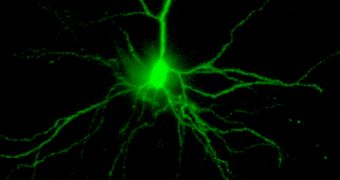A team of investigators at the Harvard Medical School and McLean Hospital, led by investigator Bruce Cohen, announces the discovery of a new genetically-inherited risk factor for the development of schizophrenia. Scientists have been trying to figure out the root cause of this mental illness for a very long time, and these results may go a long way towards advancing in this field of research.
Many patients suffering from schizophrenia display a series of brain cell insulation abnormalities that are not present in healthy individuals. In the new research, scientists have determined that the genes which cause these issues are transmissible from one generation to the next.
Though a clear answer on what triggers schizophrenia is still distant, these results may set researchers on a new course of study. What is becoming increasingly clear among schizophrenia researchers is that they need to focus on figuring out how a large number of genes interact to trigger this condition.
The new research is therefore important because it highlights what could very well be one of the most important groups of genes involved in this process. “There is abundant evidence from our center and from other laboratories that this insulation is compromised in schizophrenia,” Cohen explains.
Details of the new study were published in the latest issue of the open-access journal PLoS ONE.

 14 DAY TRIAL //
14 DAY TRIAL //